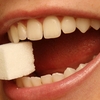What happens to an atom of sulfur (S) if it loses an electron?
A. It becomes inert.
B. It becomes a cation.
C. It becomes an anion.
D. It becomes a molecule
Answers (2)
Know the Answer?
Not Sure About the Answer?
Find an answer to your question 👍 “What happens to an atom of sulfur (S) if it loses an electron? A. It becomes inert. B. It becomes a cation. C. It becomes an anion. D. It ...” in 📗 Chemistry if the answers seem to be not correct or there’s no answer. Try a smart search to find answers to similar questions.
Search for Other Answers
You Might be Interested in
Choose all possible values of each quantum number for the electron lost when an ag atom ionizes.
Answers (1)
What is an octet of electrons and which elements contain an octet of electrons?
Answers (1)
How is molar mass used in some stoichiometric calculations?
Answers (1)
A 42.0g sample of compound containing only C and H was analyzed. The results showed that the sample contained 36.0g of C and 6.0g of H. Which of the following questions about the compound can be answered using the results of the analysis?
Answers (2)
What gas is produced when aqueous sodium hydroxide reacts with ammonium chloride
Answers (1)
New Questions in Chemistry
How can hypothesis best be tested
Answers (1)
Write a balanced equation for the combustion of 1 mol of C4H10O (l). Express your answer as a chemical equation. Identify all of the phases in your answer.
Answers (2)
A thermonuclear chain reaction is considered to be a: -sustaining reaction in which the products cause new reactions fusion reaction because new material is combined many times }common phenomenon for all unstable uranium atoms proton creation
Answers (1)
Which atoms are most likely to form covalent bonds?
Answers (1)
Which phrase is the best description of weathering? A-Compacting Rocks B-Cementing Rocks Together C-Crystallizing to form minerals D-Breaking Rocks into fragments by physical or chemical means
Answers (1)

